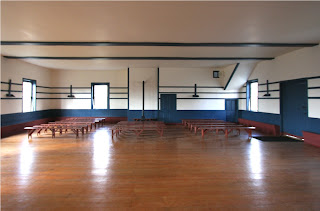Much has been written recently about the federal government's possible response to the epidemic of gun violence in this country. The loudest negative voices, including those of the gun lobby, come from the political right and point to an erosion of second amendment rights. This comes while many of those same voices are actively engaged in restricting the nations' first amendment rights. Have you read the first amendment?
Congress shall make no law respecting an establishment of religion, or
prohibiting the free exercise thereof; or abridging the freedom of
speech, or of the press; or the right of the people peaceably to
assemble, and to petition the Government for a redress of grievances.
What bubbled this issue up to the top of my worry list was an article from The Associated Press about the Tennessee Wildlife Resources Agency confiscating three rattlesnakes and two copperheads from a pentecostal preacher who was transporting them through the state. Pastor James Coots of the Full Gospel Tabernacle in Jesus Name Church in Middlesboro, Kentucky, bought the five reptiles in Alabama to be used in church services. He was stopped by the Tennessee Highway Patrol because of a vehicle violation and the snakes were discovered in his car. It is illegal to possess poisonous snakes in Tennessee without a permit, and permits usually are granted only to zoos and educational organizations.
I don't know if the law under which the snakes were confiscated has been tested in the courts. But it does concern me that such churches located in Tennessee apparently are being denied the right to practice their religious beliefs by this law.
I am NOT a snake-handling pentecostal. I do not agree with the practice, either practically or theologically. I do think they should be allowed their practices, right or wrong, because of what the first amendment says.
The "freedom of religion" clause of the first amendment was a response to the Church of England having been "established" during the colonial period. Several of the states still had established churches following independence and even after the Constitution was ratified. What this meant in colonial America and the various states was that one particular church was officially recognized and all citizens were considered to be members of that church or denomination. Typically churches were supported by taxes paid by those citizens, whether they subscribed to that religion or not. The first amendment allowed citizens to choose their own religion and, with ratification of the fourteenth amendment, be
protected from any and all religions. In other words, the nation's government is officially neutral with respect to religion.
There has been a continuing tension between the first amendment and evangelical Christians. The
Scopes Monkey Trial was a famous example. It resulted from one attempt to impose conservative religious values on all citizens, irrespective of those citizens' beliefs. Religious groups have fought teaching of evolution in public schools because it conflicts with the creation story of
Genesis. There have been continuing conflicts over prayer in public schools and government meetings, and over the posting of religious texts and symbols on public property.
Just this past week, some 50 churches in Anderson County, Tennessee, petitioned county government to be allowed to inscribe "In God We Trust" on the county courthouse. This motto is printed or stamped into our national currency, so the request would seem to be reasonable. But is it really? Is it not just another case of one group's religious belief being imposed on the whole? Is it really different from denying the "signs following" crowd their poisonous snakes? Does it matter if an issue involves a majority or a minority of citizens?
Repeatedly the courts have ruled against the imposition of religious values on an unwilling public. These setbacks have strengthened the resolve of evangelicals, who have become increasingly organized for political action. And their organization is paying dividends, especially at the state and local levels. In Tennessee, the very same state legislators who are promoting conservative Christian practices are also expanding the availability of guns to the public, promoting carrying of weapons in public places, including schools.

In 2012, former senator Rick Santorum made a credible campaign for the Republican nomination for President of the United States. Santorum's message was firmly grounded in conservative, Christian values. Since the President nominates federal judges and judges of the U.S. Supreme Court, a Santorum presidency could have had far-reaching effects on future court rulings on separation of church and state. But even the evangelicals should be careful; a pendulum swings both ways. Success gained now can be reversed in the future, and to their detriment. Do even they really want to open the door to theocracy? Do they want the United States to become a Christian version of Iran or Saudi Arabia?
Defend the liberties of those with whom you disagree, for if they can lose their choice, so can you.
Update February 16, 2014: Pastor Jamie Coots, mentioned in the first paragraph, died from a snake bite at his home in Middlesboro, KY, on Saturday, February 15, after refusing medical care. He had been bitten during a church service.
























